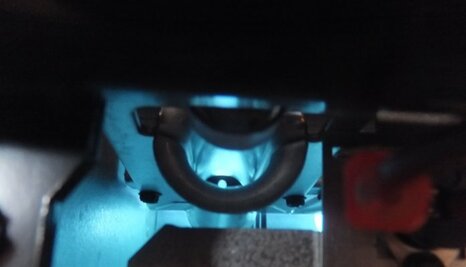|
15/3/2019 0 Comments home heating options for 2019Home heating costs have doubled over the past ten years, now representing 70% of the energy spent in Canadian homes. No one can predict how high fuel costs will go, however we can be certain of one thing - the costs will go up. It's anyone's guess which fuel might be the better bargain in ten or twenty years, so it's tough to shop for a heating system today without wondering if you've made the right decision. Although I can't tell you which choice to make, I can show you how the different fuels compare today.
Fuel Oil Oil prices can be unpredictable, however fuel oil provides good energy content, with efficiency ratings up to 86% with modern equipment. If you decide to upgrade your furnace or boiler, you will also need to install a stainless steel liner in your chimney. Older oil burners can be fitted with a “flame retention head” to improve efficiency, and regular tune-ups will also go a long way toward lowering your fuel costs. Decorative oil-fired stoves and fireplaces are available for space heating and will work without electricity. Oil-fired hot water tanks can heat water quickly and are often used for in-floor heating, as well as hybrid hot water forced-air systems. Don’t heat with oil if you feel guilty about burning non-renewable resources, or if you can’t afford unpredictable costs. A central system will require ductwork or water piping, as well as a fuel oil storage tank. Oil furnaces are priced lower than gas furnaces and enjoy on average, a longer lifespan. Natural Gas and Propane Gas and propane are cleaner than fuel oil and provide odorless heat with somewhat lower energy content than oil. Gas prices are higher than they once were, and the cost of heating with propane is even higher. There is a greater availability of natural gas in more densely populated areas, whereas propane is more often the choice in rural locales where it is compressed and delivered by truck. Both gases are popular choices for fireplaces, space heaters and hot water tanks, are clean and more convenient than wood-burning fireplaces, however gas fireplaces are about 25% less efficient than furnaces. If you’re considering one of these fuels, shop for an appliance that will provide the best return on your investment. Always compare installed prices, energy-efficiency ratings and warranties. As with oil-fired equipment, ductwork or water piping will be required for a central heating system. Modern natural gas and propane appliances vent directly to the outdoors without need for a chimney. Don’t heat with propane if you feel guilty about burning a petroleum product or if you don’t want to see a submarine-sized cylinder beside your house. Electricity Electricity is 100% efficient. Every ounce of power leaving your electric panel is turned into heat at the furnace or space heater, with no line loss and nothing wasted up a chimney or out a vent. Electricity can be more expensive per unit of heat developed, however the cost of installation is lower than with fuel-fired heating equipment. Although the equipment in your house may be 100% efficient, electricity isn’t any greener than gas, oil or propane; in fact the electricity you use may come from a coal or oil-burning power plant. Electric heat pumps are very efficient in more southerly latitudes, however provide marginal benefit in northern areas where temperatures are too low to extract heat from outside air, and a backup furnace is required. Unlike electric furnaces or space heaters, heat pump installations can be costly and the lifespan of the equipment is often shorter. Don’t heat with electricity if you don’t want to support the operation of big power plants and other mega-power projects. Geothermal or “ground source” Heat pumps provide winter heating by extracting warmth from a source and transferring it into your house. Heat can be extracted from any source, no matter how cold, but a warmer source allows higher efficiency. A ground source heat pump uses the moderate temperature of the earth to introduce heat into a home during cold weather. Although geothermal systems use no onsite or piped fuel for heating, they do require electricity to pump water from their ground array, and to run the heat pump. If you want to look at it this way; by using the earth’s temperature as a moderator, we have essentially fooled the heat pump into thinking it’s in Florida! Solar and other renewables It has been estimated that the sun provides as much energy in 15 minutes as humans use in a year. By taking advantage of that with heating and electrical generation, we can work to end our dependence on fossil fuels. However like wind turbines, the challenge is to store the heat or electric energy for the periods of time when the sun isn’t shining, or the wind isn’t blowing. These systems show great promise, however are still in the developmental stages and not an affordable or cost-effective undertaking for most homeowners. Wood If you live in a well-treed rural area, heating with wood can be a sensible choice. Wood is the cheapest of all fuels (you can save as much as 70%) and is a renewable resource - however not without drawbacks. Wood smoke can be a nasty source of air pollution unless you dig deeper in your pockets and purchase a high efficiency stove; they run up to about 75% efficiency when used properly. Wood-burning furnaces rarely exceed 50% efficiency, and with much higher emissions. Outhouse-style wood-burning boilers are prohibited in many areas. Don’t heat with wood if you don’t like chores, if you don’t have plenty of storage space or if firewood isn’t readily available nearby (trucking costs can really chew up your savings.) Don’t heat with wood if you don’t want to pay an extra premium to your insurance company, or if you have any respiratory problems. Wood heat will drastically lower the humidity in your home. Other Considerations: The size, design and insulating value of your home will have direct impact upon your heating costs. Modern, well-insulated, air-tight homes have much lower heat loss, and therefore require less fuel to maintain comfortable indoor temperatures. New generations of houses require so little heat provision that it may not matter which fuel you use – because you’ll loose much less heat to the outdoors. Setting thermostats lower will reduce costs. Zone-controlled heating systems, and space heaters can also save a bundle… it doesn’t make much sense to overheat your entire house, in an effort to make one person warm, in one corner of the basement for example.
0 Comments
Leave a Reply. |
AuthorGil Strachan is a professional home inspector, representing Electrospec Home Inspection Services in east-central Ontario since 1994. CategoriesAll Appliances Buying And Selling Cooling Electrical Environmental Exterior Health And Safety Heating Home Improvement Home Inspection Insulation Insurance Interior Plumbing Roofing Special Structure Archives
January 2024
|


